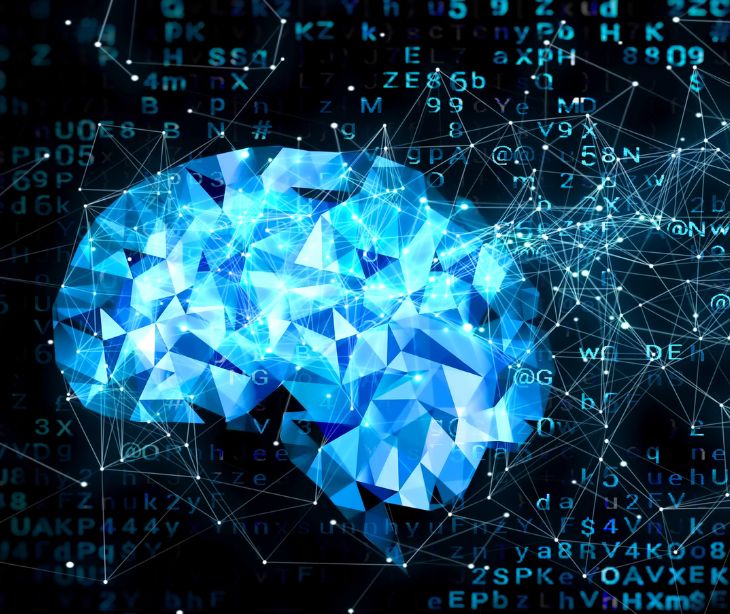3 min read
How deep learning is redefining healthcare cybersecurity
Caitlin Anthoney Jan 6, 2025 7:32:28 AM

Integrating artificial intelligence (AI) and machine learning (ML) into cybersecurity solutions has transformed patient care through electronic health records (EHRs), telemedicine, and connected devices. While digital expansion has many benefits, it has also made healthcare data attractive for cybercriminals.
In 2024, major healthcare data breaches affected approximately 168 million people in the United States. Since cyber threats are becoming more complex, traditional security methods no longer stand the test.
How deep learning can help
Deep learning is a subset of AI that can help healthcare providers strengthen threat detection, refine data governance, and simplify regulatory compliance.
A recent study on machine learning innovations for data protection and HIPAA compliance in the cloud found, “These AI-driven approaches significantly reduce response times to security breaches, improve threat detection accuracy, and enhance overall data governance practices.”
“Furthermore, the integration of machine learning models facilitates continuous monitoring and compliance reporting, streamlining the process of adhering to HIPAA regulations."
Therefore, deep learning models offer more precision and adaptability in combating unique healthcare cybersecurity challenges.
Deep learning and threat detection
Traditional cybersecurity systems rely on predefined rules and signatures to detect threats. While these are efficient for known attacks, they fall flat when hackers exploit zero-day vulnerabilities. Deep learning suits this challenge, analyzing massive datasets and identifying subtle patterns.
More specifically, deep learning can analyze complex healthcare data using techniques like neural networks on patient records, imaging files, and real-time device logs. These models can find anomalies that indicate a cyber threat, such as unauthorized access, unusual data transfer, or abnormal device behavior. Unlike traditional systems, deep learning is constantly learning and improving over time.
As the study points out, “The ongoing development of AI and machine learning algorithms will play a crucial role in enhancing the capabilities of cybersecurity solutions.”
Future research will likely develop more sophisticated models that improve threat detection accuracy while reducing false positives. These methods will help systems better understand complex attack patterns and adapt to emerging threats in real time.
Its adaptability is especially useful in interconnected healthcare systems, like the Internet of Medical Things (IoMT) devices, hospital networks, and cloud-based health data repositories.
Securing patient data and easing compliance
Healthcare cybersecurity also encompasses protecting patients' trust and adhering to regulatory standards. Health Insurance Portability and Accountability Act (HIPAA) fines for non-compliance can be crippling, not to mention the damage to reputation. Consequently, deep learning has a major role in security and compliance.
For instance, deep learning models automatically monitor EHR systems and can identify potential vulnerabilities well in advance. The models can help providers enforce data access policies through continuous monitoring and flag unauthorized attempts to access sensitive information.
Additionally, AI can help healthcare providers reduce labor-intensive processes like compliance reporting. Deep learning algorithms can automatically document the storage, access, and protection of patient data within compliance reports in real time. The automation lowers administrative burdens while simultaneously upholding HIPAA regulations.
Applications beyond cybersecurity
Deep learning holds enormous transformational potential for healthcare, from threat detection to maintaining compliance. It’s being integrated into clinical workflows with transformative capabilities like predictive diagnostics, personalized treatment plans, and drug discovery.
However, the more integrated AI becomes in clinical care, the greater the risk of cybersecurity vulnerabilities, increasing the importance of deep learning's role in securing these systems.
For example, in radiology, AI systems trained on deep learning models assist in diagnosing diseases from medical images. A cyberattack that compromises these models could lead to misdiagnoses, endangering patient lives. Deep learning-driven security solutions can help safeguard these systems, maintaining accuracy and reliability.
Overcoming challenges
Deep learning models require significant computational resources and large, high-quality training datasets. If patient data is used for training, there are potential privacy concerns. These challenges require healthcare organizations to invest in data anonymization and secure infrastructures.
Moreover, while deep learning reduces false positives, no system is perfect. So, combining AI with human oversight can help interpret alerts in context and improve decision-making, making it an indispensable tool for healthcare organizations.
Learn more: Human factors that affect healthcare cybersecurity
FAQs
What is a zero-day vulnerability?
A zero-day vulnerability is a security flaw unknown to the software or system vendor, leaving them with ‘zero days’ to prepare a response. These vulnerabilities can exist in any application, operating system, or connected device.
Who needs to comply with HIPAA?
HIPAA compliance is required for covered entities, such as healthcare providers, health plans, and healthcare clearinghouses, as well as their business associates who handle protected health information (PHI).
How can providers make Google Workspace email HIPAA compliant?
Providers must use a Business or Enterprise plan, sign a business associate agreement (BAA) with Google, and use a HIPAA compliant platform to protect patient information.
Learn more: How to set up HIPAA compliant emails on Google


%20-%202024-12-18T062339.676.jpg)

